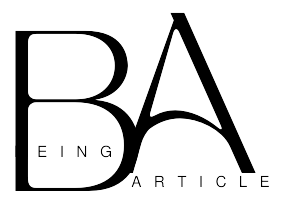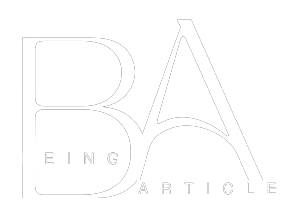How To Ask Someone What They Are Doing?
The old question “What do you do?” can become a little stale in many situations. It’s time to break out of that rut and get creative. Asking someone what they are doing can be an incredibly effective way to connect with people meaningfully. But how do you ask?
Ask A Question
Asking questions is a key skill to have when communicating with others. It helps you discover what you need to know and promotes discussion and debate.
Researchers have recently discovered that asking many questions leads to learning and improved interpersonal bonding. For example, in one study, Alison and her colleagues at Harvard found that people who asked a lot of questions during speed dates or online chats were more likely to become likable to their conversation partners than those who did not.
This is because when you ask a question, you create space for the other person to fill. This can be nerve-wracking, but it’s also the most natural way to start a conversation.
A good question elicits an answer, and it’s usually the most accurate way to find out what you need to know. Therefore, it should be clear, concise, and descriptive.
For example, if you need to ask someone for directions, your question should be simple and direct. It should not include any unnecessary details, such as the highway’s direction or the city’s name.
Another great way to ask a question is in the future in simple tense. This type of question is very easy to use and can help you connect with the other person.
You must understand the person and their situation to ask a good question. If you do not, you may get an incorrect response or cause the person to feel defensive. In addition, you need to listen to the other person’s answer carefully and then follow up with a question that can clarify any confusion.
Ask A Statement
One of the best ways to connect with someone is to ask them what they are doing. It’s a subtle way to discover what they like to do, showing them you are interested in their life.
You can also use this question to catch up with friends you haven’t seen in a while or even get to know them better. This is an especially good question for a newer friend because it’s very open-ended and lets them choose how to answer it.
This statement could be about something they do for a living, their hobby, or something relevant. This is a great way to engage the other person and see what they like to do, and it can also give you some ideas for topics to discuss in future conversations.
If you ask a statement, you should always remember the rules for asking yes/no questions and why. To ask a question, place the wh-word in front of the verb. You can then add the subject or base form of the verb.
The question structure in English is very easy to learn. You can learn it by reading and listening to conversations in English.
To make a question, start with the verb, add the subject, and end with the object. You can then reverse the structure if you want to form a statement.
A question should be in the present perfect tense, while a statement should be in the present progressive tense. Using the right question structures will help you make a clearer statement and communicate more fluidly.
Ask A Request
Writing an email to ask someone for something is a professional and convenient way to make a request. However, it’s writing the message correctly is important to ensure it is effective and receives a positive response.
Unlike in-person communication, email can often be misinterpreted or ignored unless you know your intentions. This is especially true in a business setting where time is limited and every second counts.
The best requests are action-oriented, realistic, and time-bound. They also allow you to consider questions and concerns that might arise before they are addressed.
You should also be clear about the request details and give a deadline. This can help prevent delays or misunderstandings that could cause issues in the future.
Being polite and respectful in any request you send is also important. This can make a difference in the outcome of any interaction with the recipient and could even lead to better relationships.
If you are working with people from a different cultural backgrounds, it is especially important to be polite. Unfortunately, this can be difficult, as it is a common practice in many cultures for people to feel more obligated to comply with others’ requests than to make their own.
Another important aspect of being polite in an email is correct grammar and spelling. Misspellings can be a major turnoff and will likely result in a negative reaction from your recipient.
You should also try to use simple words in your request instead of long and complex sentences. This will allow your recipient to easily understand what you are asking for and be easier to read.
Ask A Question Of Authority
The right to exercise authority over others is inherent in the human condition. We see it in many forms, from parents and teachers to government agencies and bureaucrats.
Even though many of us have to work with or for authority figures, there are times when we need to ask what they are doing and why. If you do not, you could end up jeopardizing your job, or you become frustrated and angry at the person in charge.
One way to do this is to look at the person in question differently. For example, you might consider them your boss, teacher, or mentor. This way, you can see them from a different vantage point and understand their motivations more clearly.
Another savvy tactic is to choose your words carefully. For example, instead of saying, “what is the reason you’re doing this?” try, “I am wondering if…” or “What can I do to help you understand the importance of this?”
You might also consider asking a broader set of questions by trying to learn more about them, such as where they came from or their background. But, again, you will be amazed at how much information can be uncovered when you take the time to research and troll around on Google for more details.
The most important thing to remember when asking a question of authority is that they are not out to get you. They are just trying to be helpful and ensure you know what you’re doing. They may not always answer your questions, but they will at least be willing to explain their reasons for doing something a certain way.
Ask A Question Of Clarity
Asking a question of clarity is a great way to clarify what someone else is doing and ensure you understand it properly. It can be especially helpful when you have never done something before, are unsure how to do it, or need additional information about a task or project.
Clarifying questions are also useful when you have misunderstood a speaker or want more context about their message. They can save the speaker time and effort by helping them see where you need clarification.
The best way to ask a clarifying question is to be clear and respectful. Avoid sounding accusatory, as this will likely result in the speaker reacting defensively and making it harder to get the clarification you seek.
It is also important to make the speaker see exactly where you need clarification, as this will help them focus on providing clearer explanations in those specific parts of the conversation.
Choosing the right words to use in your question can be difficult, but it’s important to be specific when asking for clarity. Be sure to describe your confusion clearly and avoid saying “I’m confused” unless necessary, as this may lead to misunderstandings or awkwardness.
There are several different types of clarifying questions that you can ask, including open and closed questions. Closed clarifying questions simply restate part of a statement and ask the speaker to confirm or deny that what they said was what the listener understood.
How To Ask Someone What They Are Doing? Tips To Know
Asking someone what they are doing can be a great way to start a conversation or to show interest in what they are up to. However, it’s important to approach the question politely and respectfully. Here are some tips on how to ask someone what they are doing:
Start With A Greeting.
Before asking someone what they are doing, it is starting the conversation with a polite greeting is important. This could be as simple as saying “Hi” or “Hello.” Starting with a greeting sets a friendly tone and shows interest in talking to the person.
Ask Casually.
When asking someone what they are doing, it’s important to do so in a casual manner. This can help the person feel more comfortable and less like being put on the spot. For example, you could say something like, “So, what are you up to?” or “What have you been doing today?”
Show Genuine Interest
When asking someone what they are doing, its showing genuine interest in their activities is important. This can help keep the conversation flowing and show that you care about the person. For example, you could say, “That sounds interesting; tell me more about what you’re doing.”
Be Specific
If you want to know what someone is doing at a specific moment, it’s important to be specific when asking the question. For example, you could say something like, “What are you doing right now?” or “What are you working on now?”
Respect Their Privacy
It’sRespecting someone’s privacy when asking what they are doing is important. If someone doesn’t want to share what they are doing, disrespecting their wishes is important. For example, if someone says they’re busy and don’t want to talk about what they’re doing, it’s important to accept that and move on to another topic.
Consider The Context
When asking someone what they are doing, it’s important to consider the context of the conversation. For example, if you’re in a professional setting, asking about work-related activities might be more appropriate. On the other hand, if you’re in a social setting, it might be more appropriate to ask about hobbies or leisure activities.
In summary, when asking someone what they are doing, it’s important to be polite, casual, and respectful. Showing genuine interest in their activities and being specific in your questioning can help keep the conversation flowing. However, it’s also important to respect someone’s privacy and consider the conversation’s context.
FAQ’s
‘What to ask instead of are you ok?
Employ simple queries such, “How are you going?” Alternatively, “What has been going on? You seem a little flat recently, I’ve observed. Explain the precise concerns you have, such as, “You don’t seem to be your bouncy self lately.” Use open-ended inquiries like, “So tell me about,”
What doing or what are you doing?
The correct response is what you’re doing.
What’s better than asking how are you?
What did you envision yourself to be when you were younger? What do you do that you are aware sets you apart from most people? Do you now require assistance with anything? Is there someone I can connect you with?
Are you okay or are you alright?
Are you alright? alternatively, “Are you okay?” Both are in perfect health. I would inquire about someone’s health using both (Maybe after they have slipped or fallen for example) Quite a few people in England greet one another with the phrase “Alright? “. Both claims are true.
What can I say instead of how are you?
Hello, how are you? What are you doing? How are things going? What’s the status?
What are they doing or what they are doing?
When a question is being asked, the phrase “what are you doing?” is appropriate. What are you doing in my lab, for instance? When used as a statement, “what you are doing” is appropriate.




















